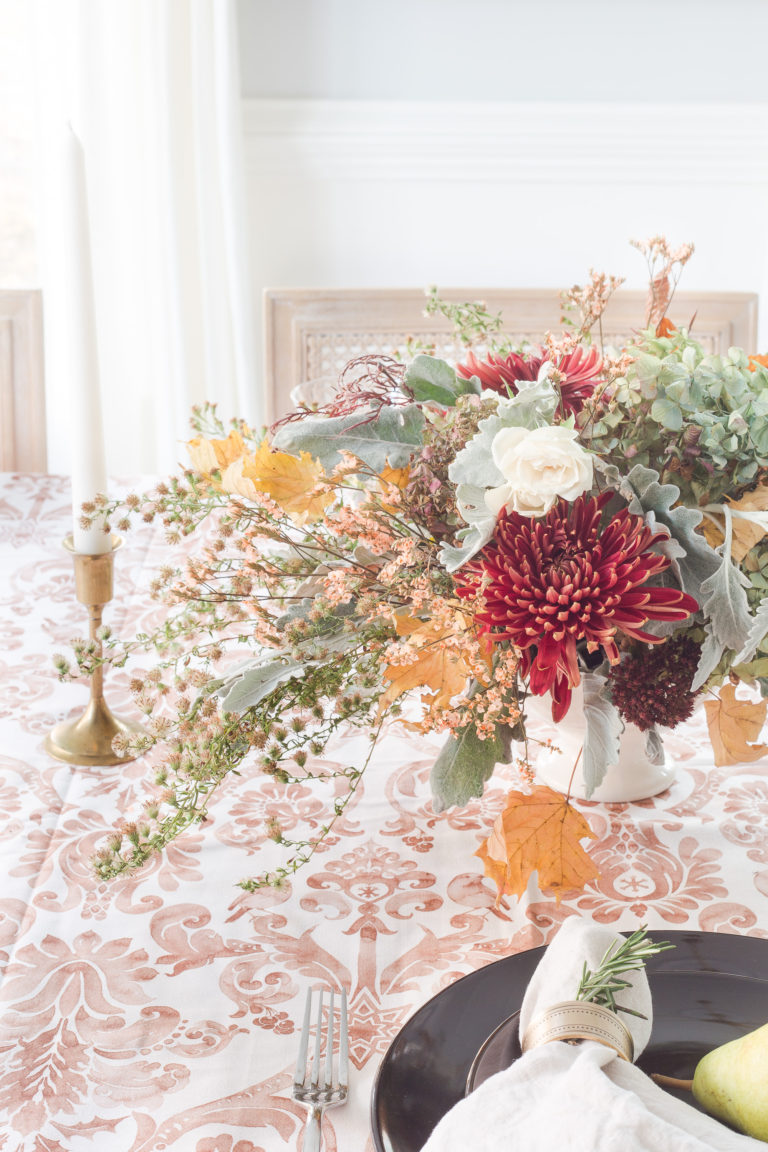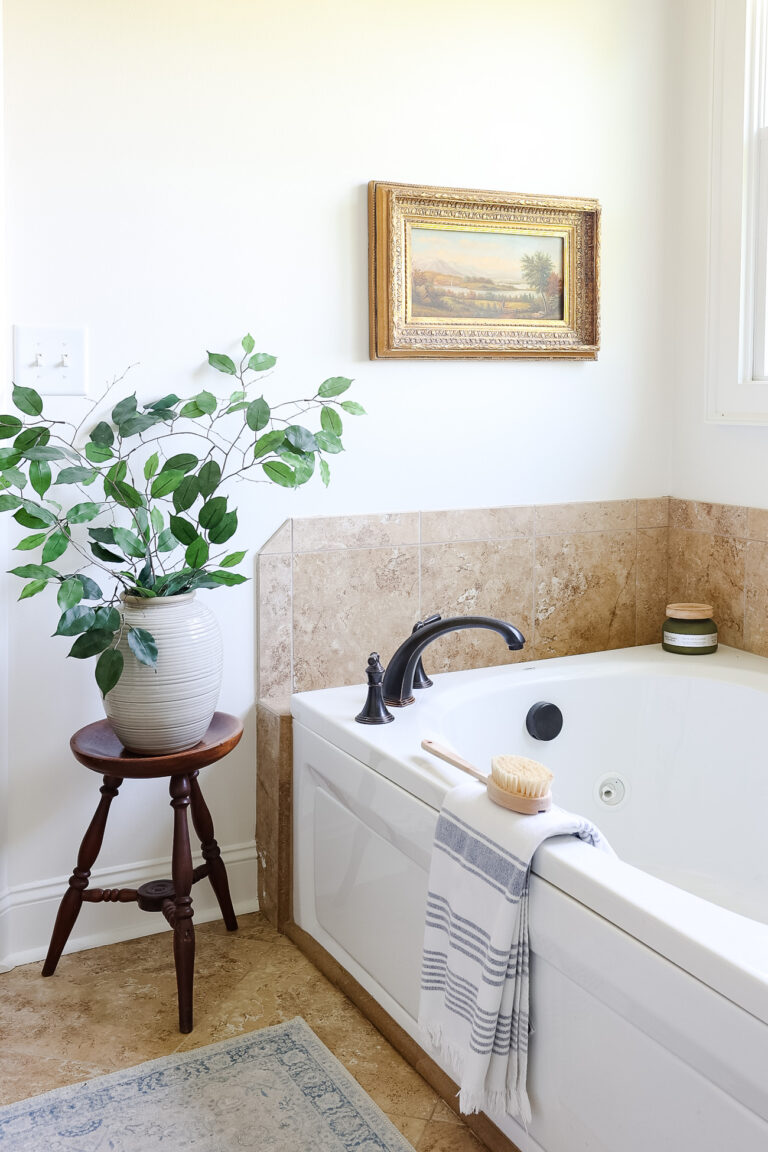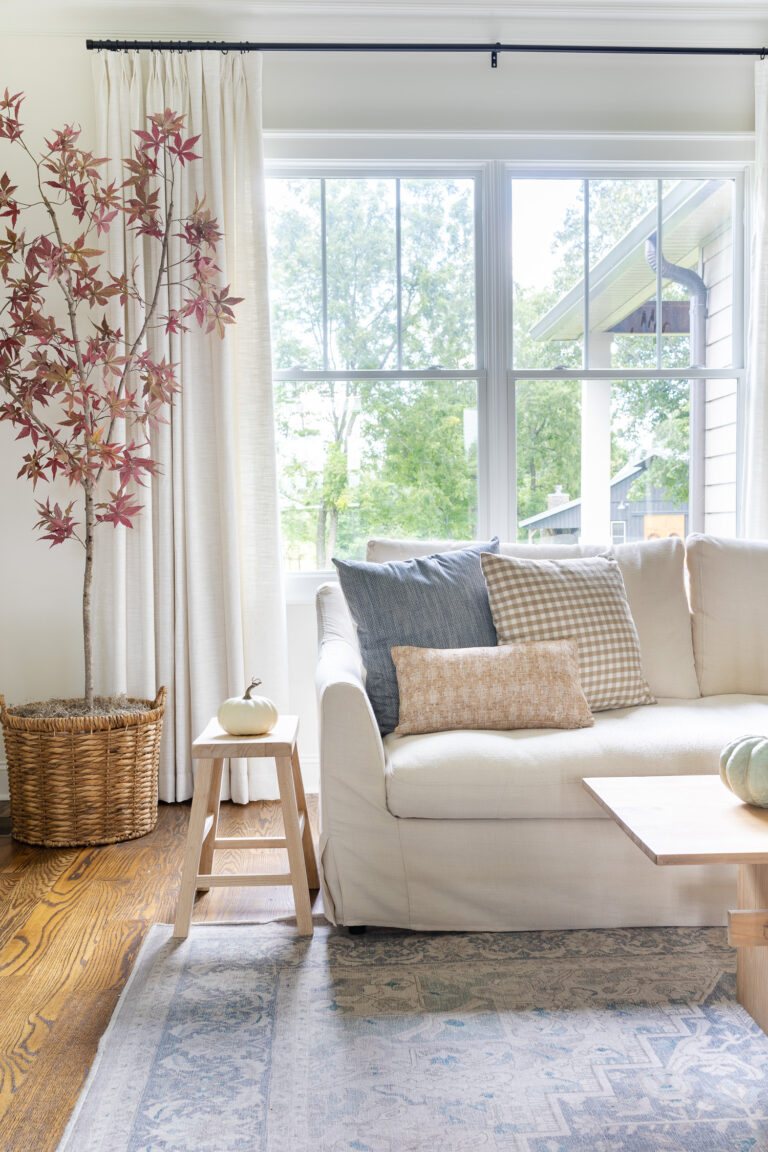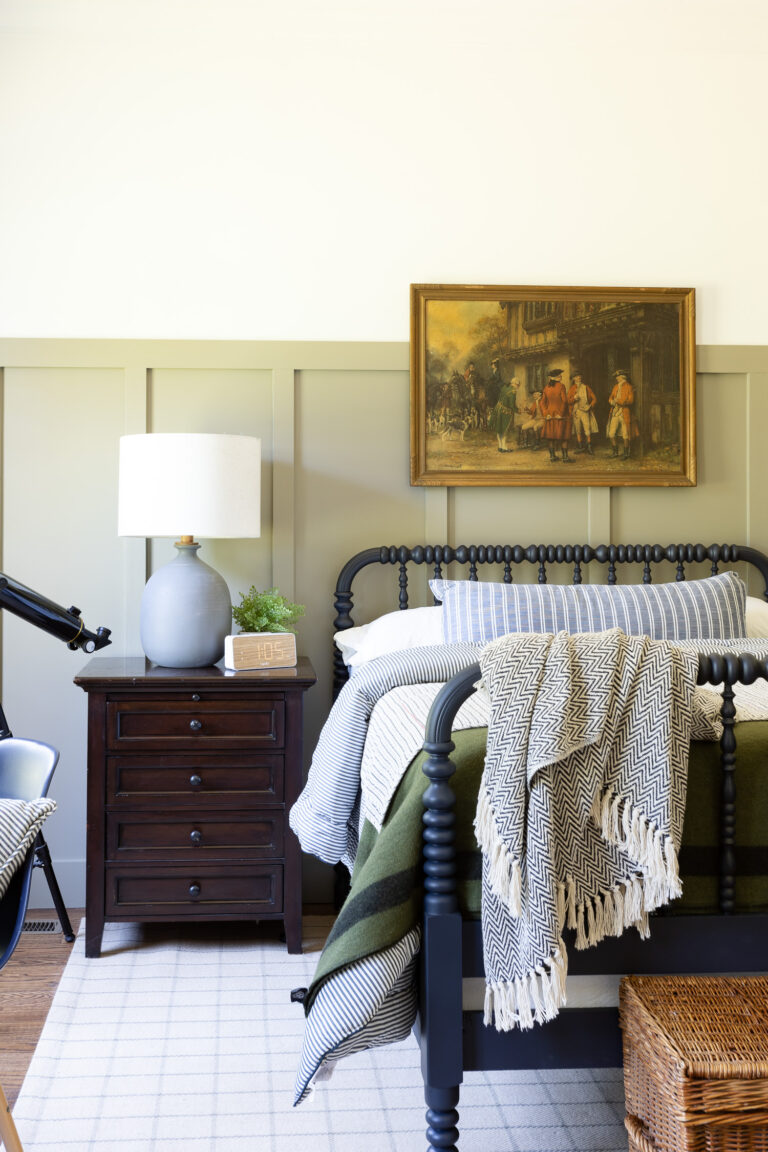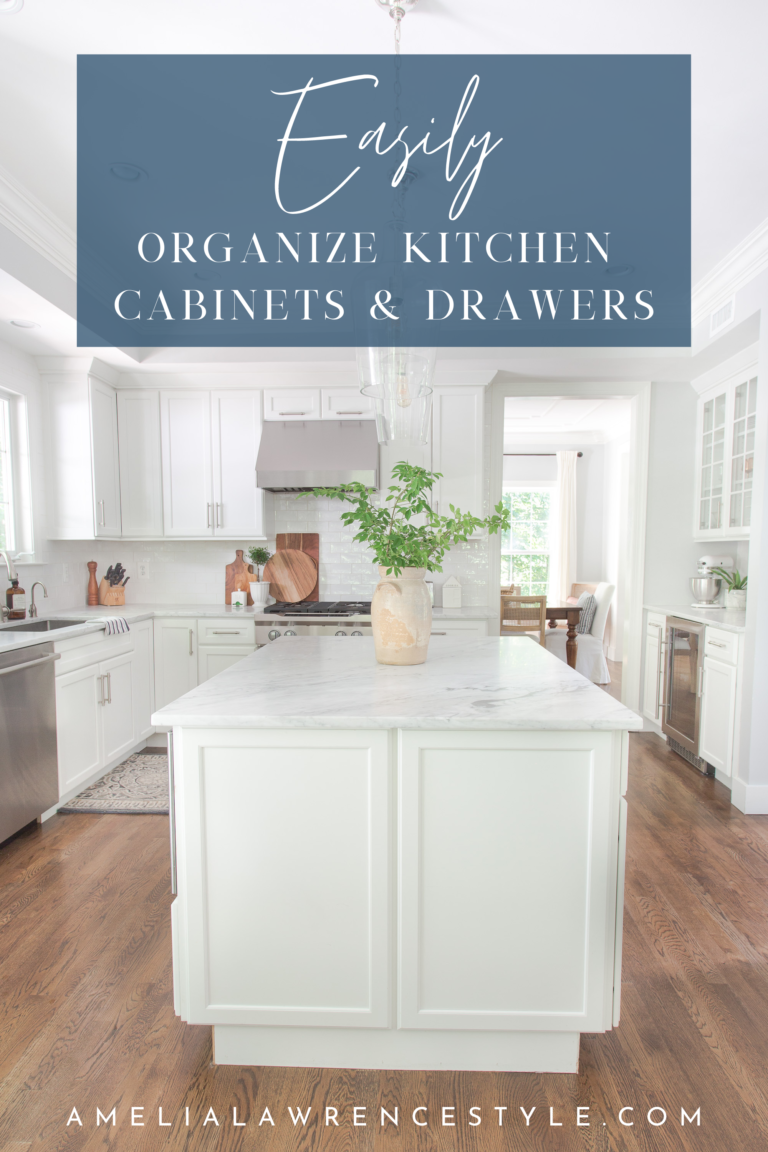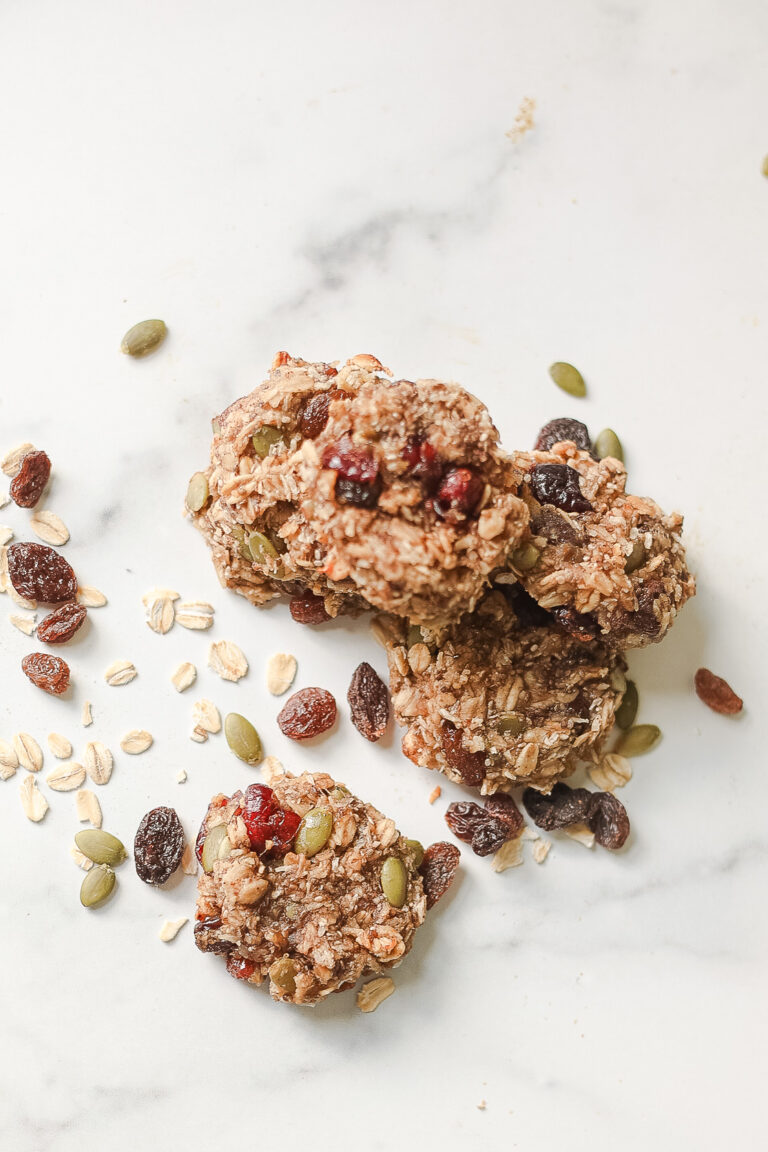Waste Free Living
Waste free living is more than just a choice; it’s a lifestyle. I would like to embark on a more zero waste lifestyle, but it won’t happen overnight. Less waste and eco friendly choices have to be a thoughtful process.
I love to re-purpose furniture, shop at thrift stores, pick fresh blackberries from the yard and make my own DIY All Purpose Cleaner, but not sure I have tried to incorporate a direction to be totally waste free. While I don’t think we are a family who adds a lot of trash to landfills; we do add our fair share.
This post is not to get you to immediately invest large amounts of money into eco friendly products. It’s to make you think about how you could swap out one product for another and begin to live a little bit more waste free.
This post contains affiliate links where I can receive commission from your purchases, thank your support. Please read my full disclosure.
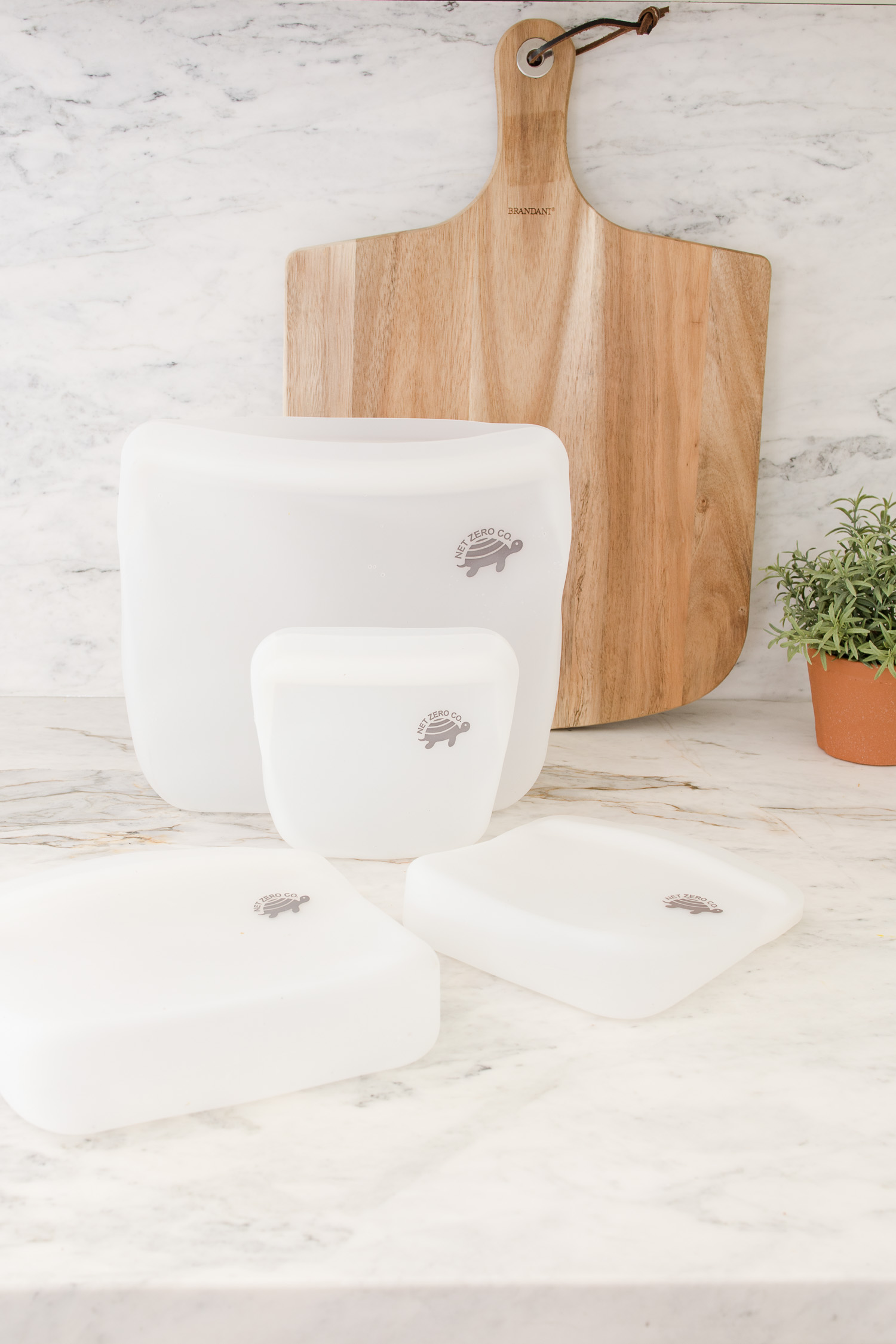
When Net Zero and Basic Goods reached out to me, and offered me $75 worth of products; I began to think about sustainable living a little more. This post is not sponsored by them in anyway and the thoughts and opinions are my own, but I did want to divulge they gave me products to try. However, I receive no compensation if you purchase any products from the links in this post to their site.
While I think it might be impossible for our family to embark on total waste free living overnight; I believe we can do a better job on using eco friendly products in our home to help us save money and lessen environmental waste.
What is Waste Free Living?
The term “zero waste“ has become recently popular, but what does it mean? Reusing, recycling, composting organic matter, and using re-useable packaging whenever possible. While it may seem like a daunting task, there are many easy ways to reduce your waste even if you never become totally waste free. Waste free living is a lifestyle change that works to eliminate waste.
Did you realize, there is no such thing as “waste” in nature. The by-product of one system is used for another. God created certain animals to clean up road kill; it’s gross to think about, but true.
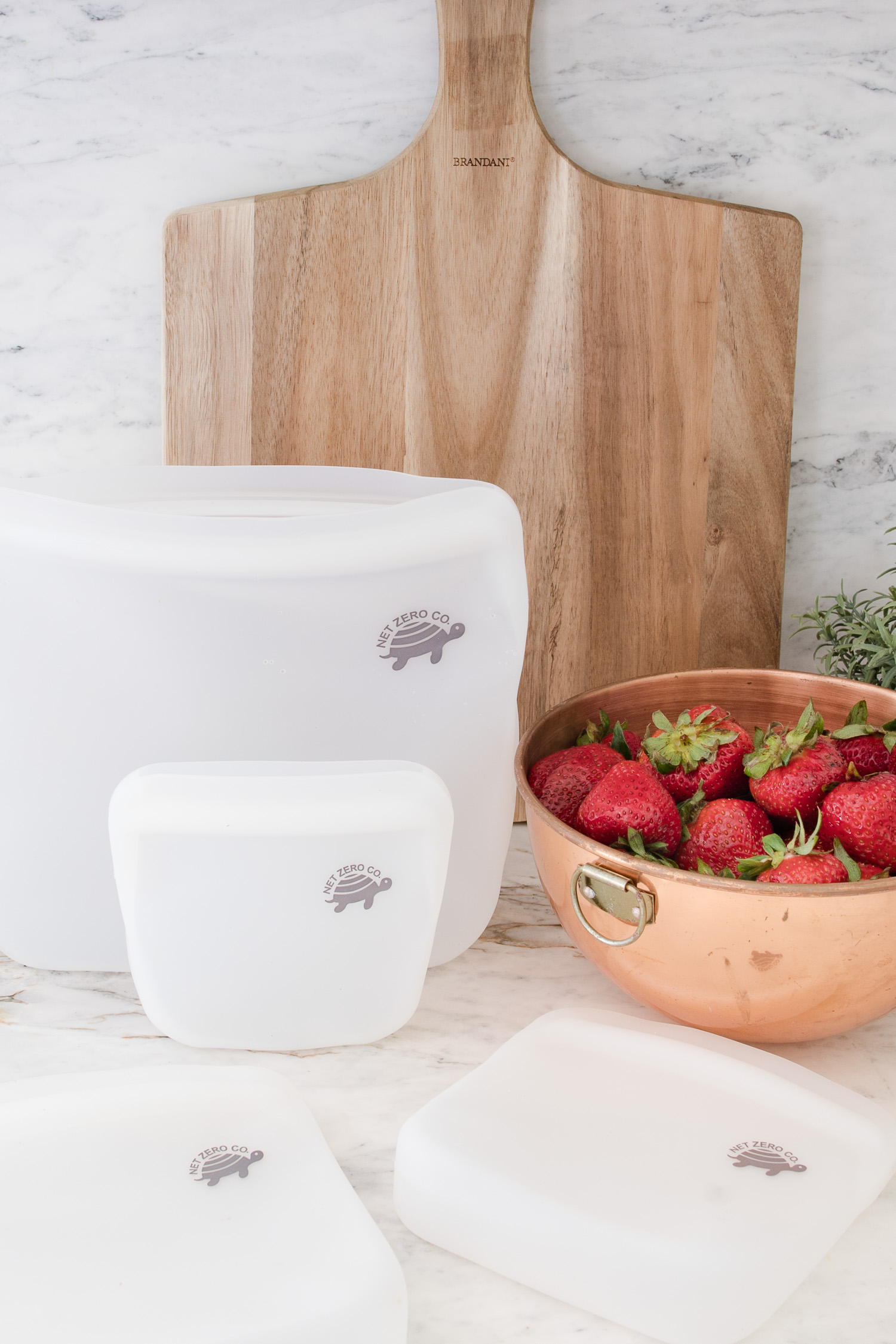
Waste Free Mindset
I’ve read stories of people that can fit all their weekly waste in a mason jar. Wow…good for them, but it might be hard to me to live up to that standard; especially overnight.
Waste free living promotes the goal of reducing the amount amount of material we throw away like paper towels, sandwich bags and plastic wrap. We can live more waste free through small shifts in our daily activities. In this way, we greatly reduce our impact on our environment, how much rubbish we generate, how we preserve our resources for future generations, and save money.
The easiest way for us to begin making zero waste swaps was to reframe my mindset. Using the term waste conscious instead of waste free seems more realistic at this stage. I am making an an effort to find ways to reduce my waste and be aware of how much waste our family is producing.

Ways to Live Waste Free
Again, not here to have you totally embrace the planet and make toothpaste from leaves, just a few ideas that we can all incorporate to help use use less and save more.
Check Out These Other Posts!
How to Select the Perfect Kitchen Backsplash
Unlacquered Brass Kitchen Hardware
DIY All-Purpose Cleaner
Reuse and Recycle
One way to embrace waste free living is to value everything you already have. Before tossing it or donating it; figure out another way to use it. For example, one of my daughter’s old twin sheets can be cut up and used for furniture staining rags or window cleaning cloths. Empty glass jam jars can be re-used for storing screws in the shop, left over paint or other food products.
Composting Food Scraps
I haven’t done this yet, but once I begin a garden I likely will need to begin to have a compost jar or compost bin.
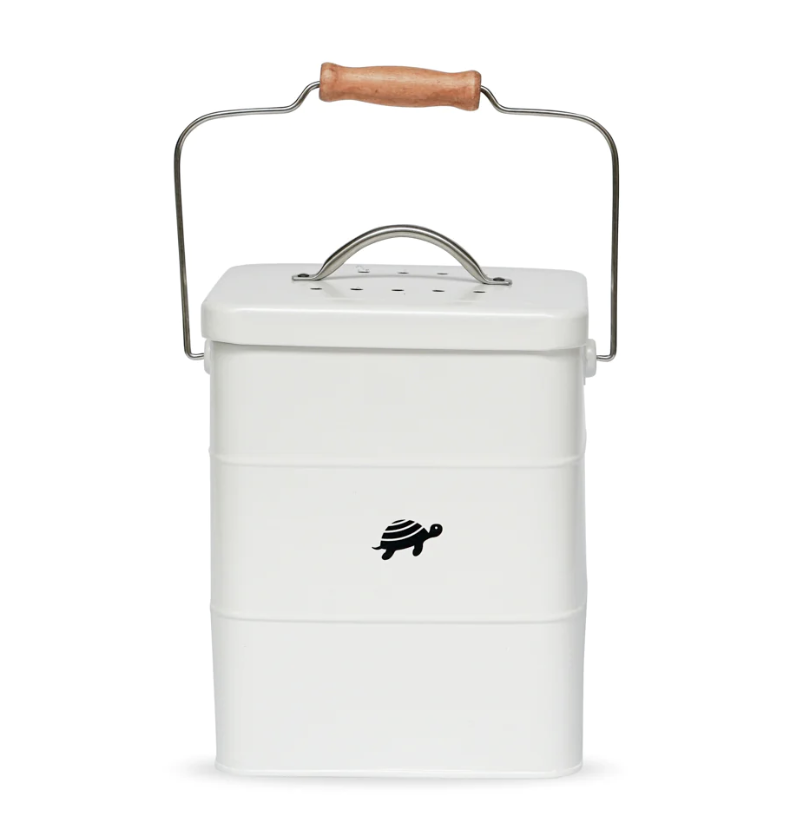
Waste Free in the Kitchen
Swap out your plastic sandwich bags, plastic wrap and foil for silicone alternatives.
- Silicone baking mat instead of foil or parchment paper
- Silicone storage bags instead of plastic ones
- Silicone stretchable lid covers
- Glass or stainless steel containers instead of plastic ones
- Carry your own glass or stainless steel water bottle
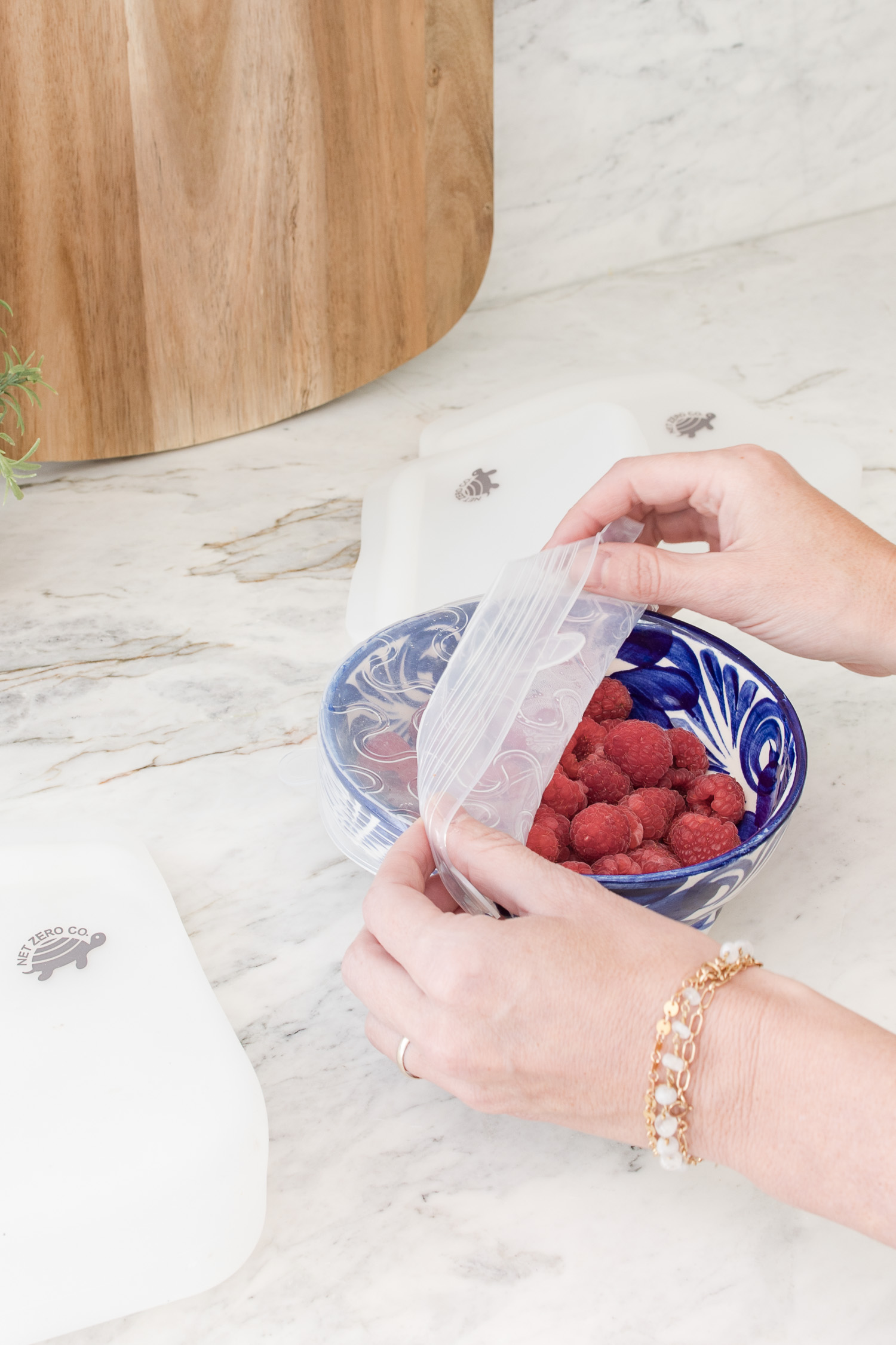
Shop Thrift Stores
I do this one all the time; probably too much, but I love a good thrift store haul. Thrifting has been part of my family since before it was cool and I have found so many useful household and clothing items that not only saves me money but saves on packaging, shipping an item, etc. From clothes, to vases, dishes and bedding…I love the thrift store. (I’m actually addicted)
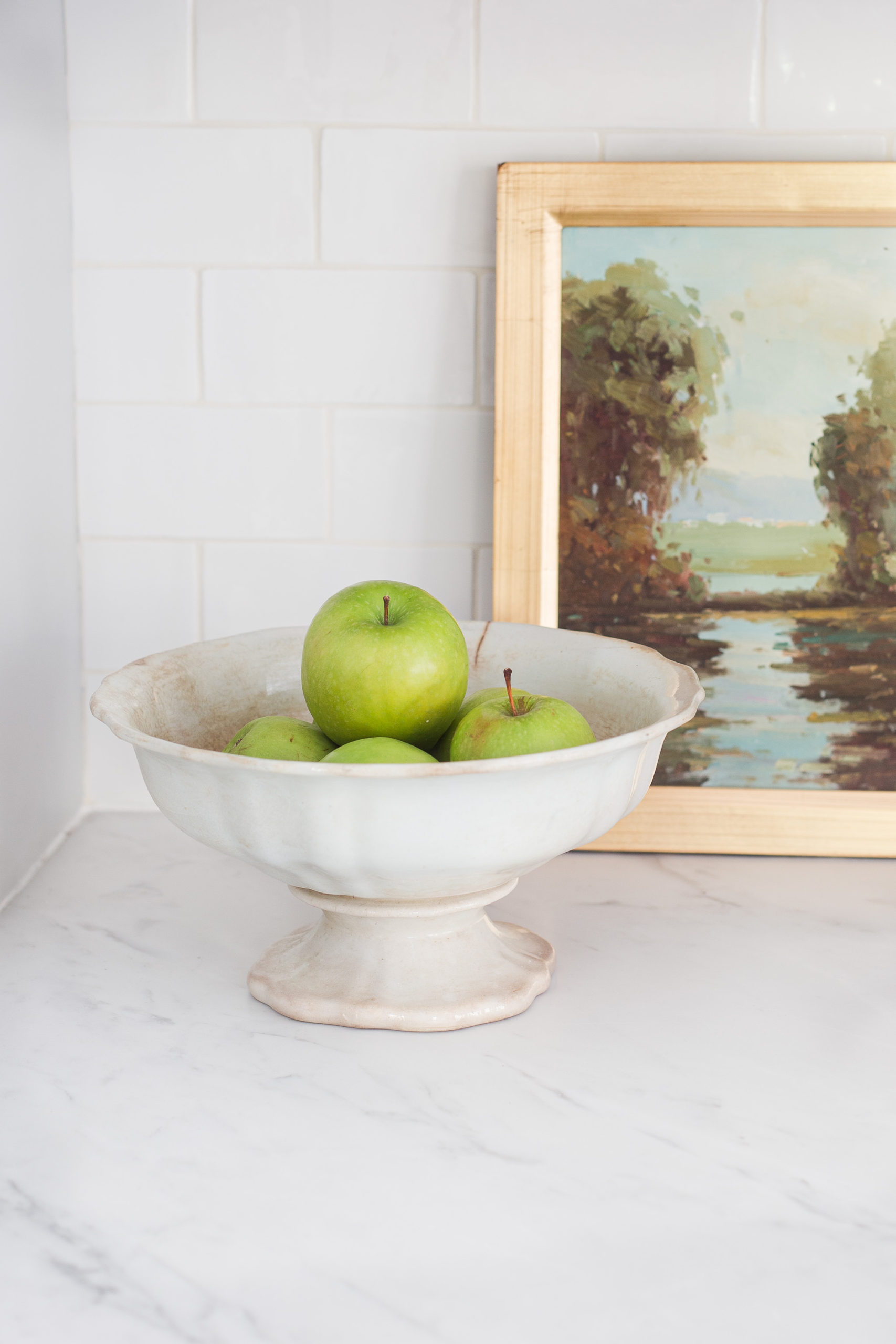
Bring your Own Shopping Bags
Instead of collecting dozens of plastic bags every week at the store; bring your own shopping bags that can be used every single week. I love shopping at Aldi; it’s not fancy and you pay to use a cart and bring your own bags.
Make Your Own Cleaner
Making your own All-Purpose Cleaner is another great way to live more waste free. Not only is this cleaner safer to use, but it will also save you money and reduce waste from plastic cleaning bottles by re-using glass spray bottles.
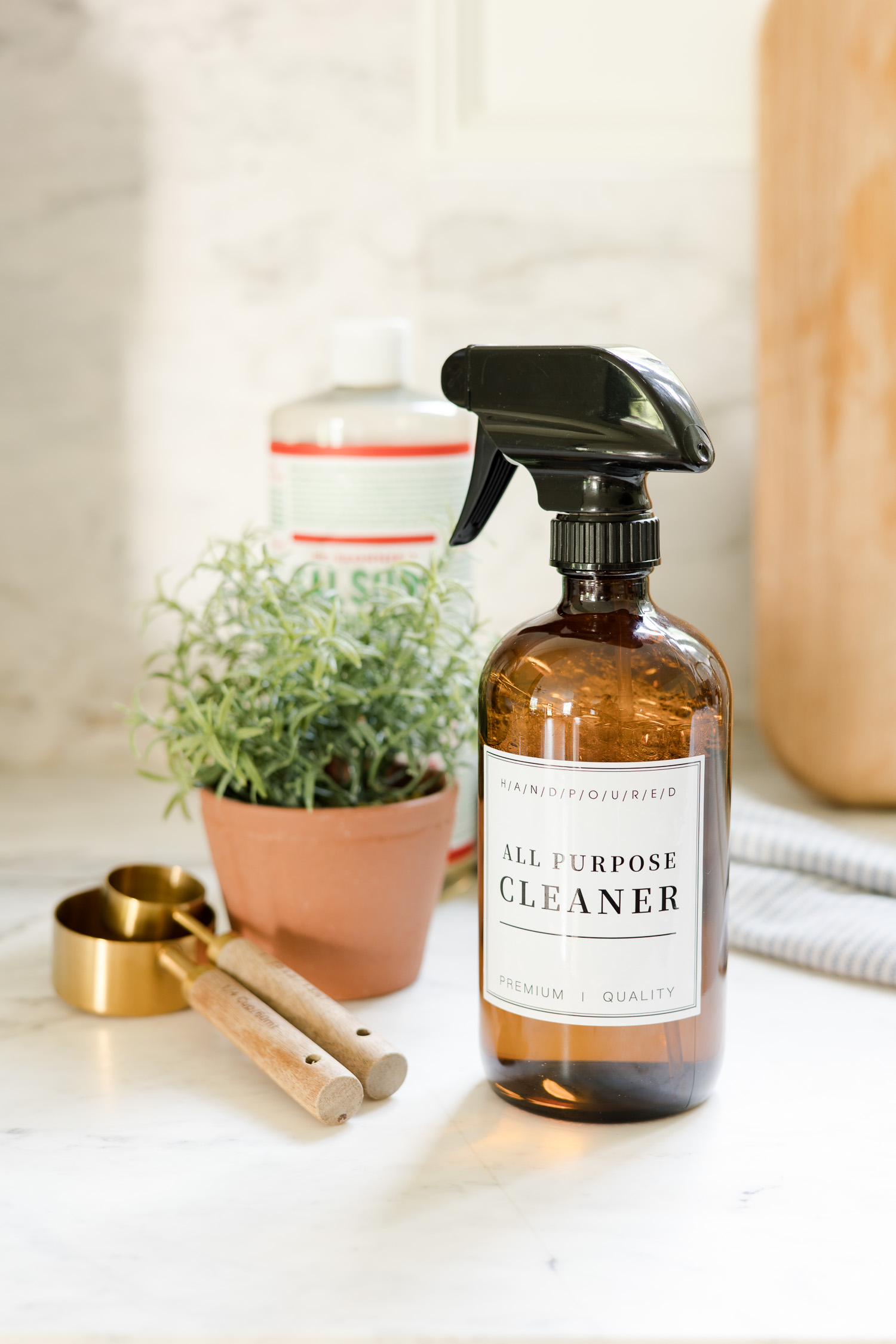
Plastic is Not Part of Sustainable Living
We all know plastic is not sustainable. From bags to wrap to straws…it’s not sustainable. From how it’s made to how it breaks down once tossed; it’s not eco friendly at all. We all know that to some extent. Some of us care and some of us don’t. I find myself in the middle and would like to do more to be more waste free.
I love my plastic straw just as much as the next guy, but there are other alternatives. Several months ago I purchased these glass straws for our home and we all love them. I always had a box of bendable plastic straws in the pantry to drink our smoothies. One day I wised up and tossed the plastic straws for papers ones and became ever even wiser and stopped buying straws all together. Now we have 7 glass straws that are totally re-useable and washable. We love them!
Silicone Waste Free Products
Silicone products are the rage right now and while they are better than plastic; they are not sustainable necessarily. I am not a scientist or a sustainable expert but not all all waste free products are sustainable, but they might have high useability.
Silicone is great in the kitchen for using instead of bags and plastic wrap.
- High quality silicone can be used over and over again, washed, heated or frozen and resists cracking and deterioration like plastic.
- Silicone is watertight, and can be used to create watertight and airtight seals to keep food fresher for longer.
- Silicone is BPA free and free other toxins found in petroleum-based plastics.

What is Silicone?
Silicone is an alternative to many more harmful plastic products. While it may not be perfect, it is widely considered to be preferable to other plastics.
Silicone is a polymer derived from silica, a naturally occurring mineral found in sand and stone. Because it’s still a synthetic polymer, creating silicone, silica must go through a complicated chemical process, The heating process requires an industrial furnace and this furnace will require fossil fuels to be burned.
The hydrocarbons with which silicon is reacted to make silicone are also fossil fuel derived. So it is important to remember that while it may require fewer harmful fossil fuels than other plastics, silicone is by no means a pure green material.
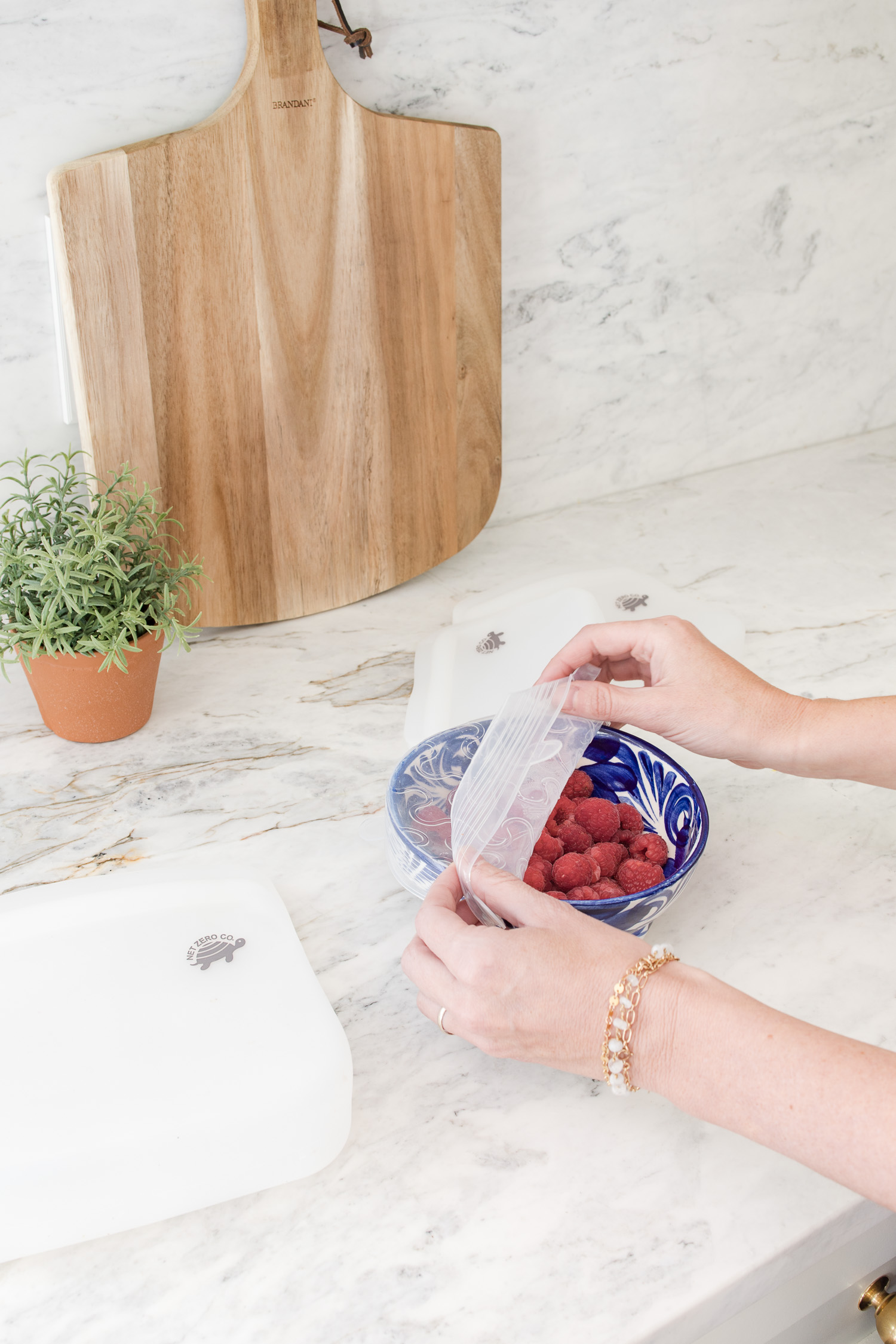
Why is Silicone Better?
Silicone is better because it’s more durable, and longer lasting than many other materials. So choosing silicone rather than plastic products can help you keep kitchenware items for longer. Keeping and reusing everything you buy and own for as long as possible is a good way to reduce waste.
Silicone is non-biodegradable however and because it is extremely durable it will last in the environment for longer even than other plastics. But one of the benefits of the durability of this material is that it will not, unlike other plastics, break down into ever smaller and smaller microplastic pieces. So even when silicone does end up in the environment, it is considered to be less of a problem for wildlife and ecosystems. Of course, once you have silicone items, the best thing is to use and reuse them for as long as possible.
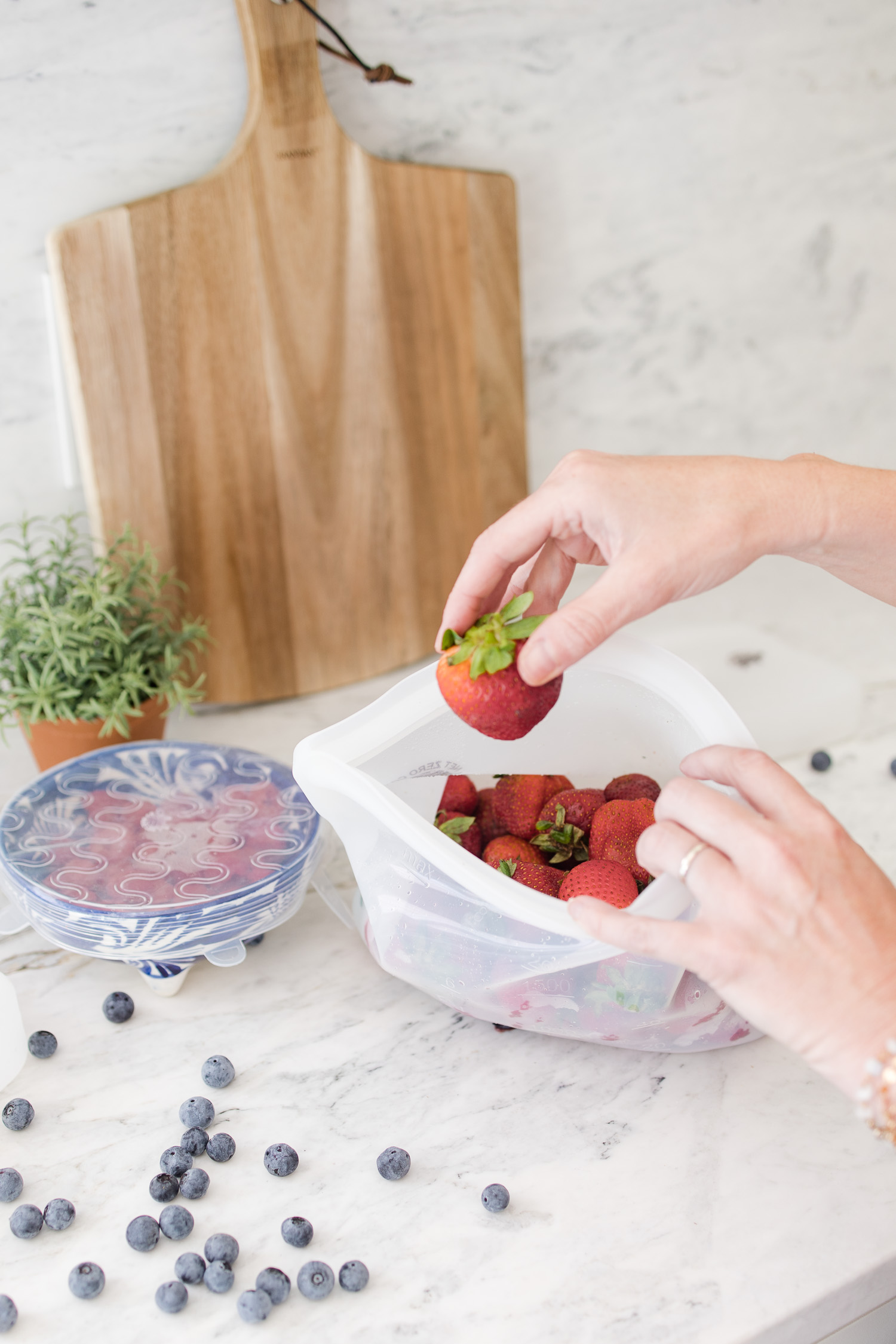
Final Thoughts on a Zero Waste Home
An eco friendly lifestyle might not be part of who you are. Some people embrace and have strong convictions about less waste or zero waste. I think we can all do better with using more sustainable products and creating less waste in our homes. There are so many wonderful companies like Net Zero who are trying to help all of us purchase products that help us reduce, re-use and save money in the long wrong.
Would you try any of these products in your home?

Follow for home decor, DIY and to shop: Instagram | Pinterest | LiketoKnowit



